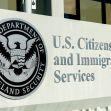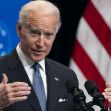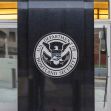The Trump administration has extended a proclamation ban on work visas and new green cards until March 31, 2021. On Thursday, President Trump signed a proclamation that prolongs the ban that was originally issued in April and renewed in June.
This new COVID-19-related immigration ban specifically covers immigrants who are coming to the United States on H-1B work visas. The H-1B visa is highly coveted by international IT workers as it has been a major source of employment for big tech companies like Amazon, Apple, and Google in the United States. The Visa is especially popular with skilled Indian and Chinese workers.
The ban also targets individuals who are coming into the states on a green card, whether it be for work or family reunification purposes. Though the ban will only apply to green cards that were issued after the ban was put into place in April.
The Trump administration argues that the bans are critical for strengthening the U.S. economy, especially since the economy took a downturn after the pandemic hit.
In the proclamation, Donald Trump explains, “I suspended, for a period of 60 days, the entry of aliens as immigrants, subject to certain exceptions.” The proclamation goes on to say, “I further noted that the Secretary of Labor and the Secretary of Homeland Security had reviewed nonimmigrant programs and found that the admission of workers within several nonimmigrant visa categories also posed a risk of displacing and disadvantaging United States workers during the economic recovery following the COVID-19 outbreak. Consequently, I suspended, through December 31, 2020, the entry of any alien seeking entry pursuant to certain nonimmigrants visas, subject to certain exceptions.”
The extension of the ban comes just 20 days shy of Trump's last day in the White House. However, he maintains that his reasons for prolonging the bans have not changed from when he first issued them in April and June.
American Businesses Respond
Many tech companies, especially those centered in Silicon Valley, have voiced their disagreement with the extension ban. It's not just top tech industries that have shared their criticism, but consulting firms, hospitality industries that rely on seasonal foreign workers, and even the landscaping industry have criticized the ban, emphasizing the need for the continuance of foreign workers.
In late September, Oakland, California, US District Judge Jeffrey S. White blocked the Trump administration's initial ban, citing that it “deals with a purely domestic economic issue -- the loss of employment during a national pandemic,” and that “This court rejects the position that the proclamation implicates the president’s foreign affairs powers simply because it affects immigration.”
Judge White blocked the ban after the US Chamber of Commerce, the National Association of Manufacturers, and the National Retail Federation sued to stop the ban from taking effect. However, only plaintiffs who were represented in the lawsuit, including tech giants like Amazon.com and Microsoft Corp, were granted permission to continue hiring internationally. The block on the ban does not apply nationwide to other businesses.
In the lawsuit, the three organizations argued that disabling a company's ability to hire internationally would impede the growth of the American economy because H-1B visa recipients represent a variety of professionals including doctors, nurses, and IT experts who are critical in many industries across our nation.
This last-ditch effort to extend the immigration ban aligns with the Trump administration's perspective on immigration policy. With the incoming Biden administration, some hope that many of the immigration policies set by the Trump administration will be reversed, but it's unclear whether or not there will be a reversal on this recent work visa ban.






